 September 4, 2012 September 4, 2012
By James Burchill.
BURLINGTON, ON. Ever wonder what the most controversial topics on Wikipedia are? The crowd-sourced and edited online encyclopedia is home to a lot of contention. Entries on the site can change in seconds, especially in the more controversial subjects, while others may be horribly written and stay that way for months because it’s not a topic of interest to most editors on the site.
So what are the subjects most likely to be controversial and see the most changes by the most editors? What are the topics that suffer the most revision as points of view clash?
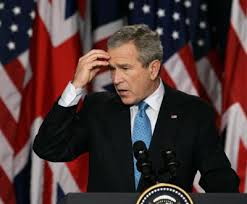 Controversial? Worth getting more information on? Well, I wasn’t the only one to wonder that. Some students and faculty at the University of Oxford (yes, that Oxford) wondered too. Lead by Taha Yasseri, the team decided to analyze Wikipedia to find out which topics were most controversial based on the intensity of their “editing wars.”
Not as easy as it sounds, though. Wikipedia is home to about 22 million articles in 285 languages with about 77,000 contributors working on it on any given day. Not happy with just the four million English version articles, though, Yasseri and his team decided to break down the controversies by language as well, looking at all 22 million articles to do it.
First, they had to define “controversial” as it applies to Wikipedia. Going by edits alone wouldn’t indicate contention as it could also mean that it’s a “live” subject that is rapidly changing or evolving, such as a current news event (e.g. a current television series or a current legal trial). So they focused on “reverts” instead, which are edits which are made by one person and then undone or removed by another. These are relatively common, though, but “mutual reverts” where an editor restores an earlier edition and then another editor (often the one who made the new changes that got reverted) changes it back to the new version again. These “edit wars” can go on for days in a back-and-forth struggle as editors duke it out over how things on the site are worded.
That definition works well for what the Oxford team wanted to measure. Using that, they were able to analyze Wikipedia and, after separating articles by language, create a “Top 10” list for them. The ten most controversial topics in English are:
1. George W. Bush
2. Anarchism
3. Muhammad
4. List of World Wrestling Entertainment
5. Global Warming
6. Circumcision
7. United States
8. Jesus
9. Race and intelligence
10. Christianity
 At least people are asking questions: still far too many people saying it’s bunk. Some of those are not surprising, of course, but others come out of nowhere. The top entry is a real surprise, since Bush has been out of office for over five years and is now relatively ignored by the news media. The second is a contentious but not often considered political philosophy that most of us might not even know exists. The third makes sense, as does the fifth, but who would have known that the WWE was so controversial?
 Go figure on this one: wrestlers? Indeed, this is a very interesting list. The team says that in every language, topics of religion are nearly always represented in the top five, as are topics like Israel, Adolf Hitler, and God. For the most part, though, these commonalities are overshadowed by the vast differences in what’s controversial in one language versus another. This often involves controversial war topics or native cultural topics, but can also be celebrity topics specific to the region the language is most commonly associated with.
You can read Yasseri et al’s work on Wikipedia measurements here.
 James Burchill creates communities and helps businesses convert conversations into cash. He’s also an author, speaker, trainer and creator of the Social Fusion Network™ an evolutionary free b2b networking group with chapters across southern Ontario. He blogs at JamesBurchill.com and can be found at the SocialFusionNetwork.com or behind the wheel of his recently acquired SMART car. James Burchill creates communities and helps businesses convert conversations into cash. He’s also an author, speaker, trainer and creator of the Social Fusion Network™ an evolutionary free b2b networking group with chapters across southern Ontario. He blogs at JamesBurchill.com and can be found at the SocialFusionNetwork.com or behind the wheel of his recently acquired SMART car.

 August 29, 2013 August 29, 2013
By Ray Rivers
BURLINGTON, ON. Let’s debunk the nonsense about the high cost of renewable energy in Ontario. Gord Miller, Ontario’s Independent Environmental Commissioner, estimated that, for 2010, the total cost for wind and solar was a mere 3% of a household’s total ‘energy used’. Since your household bill includes other charges, such as delivery and debt recovery,that translates into just over one percent.
 There are thousands of small solar panel installations like this across the province – they work very well and in many cases provide revenue for the owners. So, McGuinty’s Green Energy Act is not why your hydro bill keeps climbing and it’s certainly not going to bankrupt the province, as the scare mongers would have you believe. That rising tide of hydro bills has to do with more mundane matters like updating, improving, maintaining and expanding our grid infrastructure; and building new power plants even as electricity demand has been falling.
Yes, there is the half-billion dollars, or so, wasted on the cancelled gas plants – but that pales with what we’ve spent on the nukes. Professor Jose Etcheverry, with the Faculty of Environmental Studies at York University, sums up Ontario’s nuclear experience as “it always costs much more and takes longer than originally budgeted”. He points out that $1 billion is being shelled out to consultants just to estimate the cost of fixing our newest nuclear plant at Darlington. And like the cancelled gas plants we won’t see a kilowatt of energy out of that money.
Canada was proud to be only the second nation ever when, in 1945, we achieved a self-sustaining chain reaction with a tiny reactor at Chalk River, Ontario. But it was only seven years later, in 1952 when Chalk River became the site of Canada’s first nuclear accident. And there was another one in 1958, and then there have been three more serious Canadian accidents after that. Fortunately there were no direct fatalities from any of these mishaps.
As the professor points out, Ontario’s experiment with nuclear power has been costly. And there is still no plan or budget to deal with the nuclear waste we have been storing on-site in big pools, pools like the ones at Japan’s Fukushima nuclear plant. Leaking radioactive water from that disabled plant, now the worst nuclear accident in history, is a real environmental concern, which nobody should take lightly as we watch the poisonous plume of seawater approach the shores of North America.
Ontario is a pretty stable seismic location to situate something like a nuclear plant. But it wasn’t the earthquake which caused the crisis in Japan, it was the flooding tidal wave. And if we learned anything this year, it is that we, too, are powerless against floods when nature decides to unleash its furry. Then, there is always the chance that something else will go wrong as it did at Three Mile Island and Chernobyl or at Chalk River. And what about the chance that some terrorist makes her way inside the reactor building?
 Ontario has a number of nuclear energy reactors – they were expensive to build and are very expensive to maintain. We get half of our electricity in this province from nuclear energy and the facilities have been pretty reliable of late. But we know there will be more problems, requiring even more money to be poured into these reactors as they age and decay. And then there are the unknown costs of eventually decommissioning the plants and the contaminated sites they sit on. So the chattering class of pundits, taking shots at renewable energy as being too expensive, are either lying to us or have their heads stuck where the sun doesn’t shine.
Speaking of the sun, I installed a solar panel last year. Imagine how much different our power needs would be if everybody had one of those on their roof. Sure, you need to back-up these renewable sources with gas plants, at least until the engineers can get their act together and develop ways of storing surplus energy – with capacitors or hydrogen gas or something else. And there will always be some bean-counter crying ‘unreliable’ or ‘inefficient’ when she spots below-capacity generation on a cloudy and calm day – but that is the nature of the beast. These systems only work when the conditions permit, but work they do.
Wind turbines and solar panels are as safe as electrical generation gets – something we can never say about a nuclear chain reaction. And the costs of buying, installing, maintaining and de-commissioning renewables are relatively inexpensive. I know there are people who give themselves stress headaches, worrying about a wind turbine, half a kilometer away, producing a whoosh of wind only they can hear. But really they need to get a grip – for example, they should take comfort in knowing a wind mill will never threaten them with the China Syndrome.
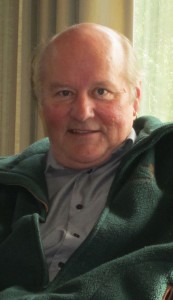 Ray Rivers earned an economics degree at the University of Western Ontario, taught in New Zealand and earned a Master’s degree in economics at the University of Ottawa. His 25 year stint with the federal government included time with Environment, Fisheries and Oceans, Agriculture and the Post office. Rivers is active with ratepayers groups, a food bank, environmental organizations, community journalism and policing. He has run for municipal and provincial government offices and held executive positions with Liberal Party riding associations. Ray Rivers earned an economics degree at the University of Western Ontario, taught in New Zealand and earned a Master’s degree in economics at the University of Ottawa. His 25 year stint with the federal government included time with Environment, Fisheries and Oceans, Agriculture and the Post office. Rivers is active with ratepayers groups, a food bank, environmental organizations, community journalism and policing. He has run for municipal and provincial government offices and held executive positions with Liberal Party riding associations.

 April 21, 2013 April 21, 2013
By Ray Rivers
BURLINGTON, ON. Last June, the Russian parliament unanimously passed a law that criminalizes “propaganda of non-traditional sexual relations among minors”. Presumably directed at the media, fines can reach as high as a million rubles, about $30,000 (Can) for a violation. It is unclear whether religion, increasing social conservatism, or the perceived need by Russians to reverse their falling birthrate was the stimulus for this bill. It is also unclear how broadly the authorities will interpret the new law.
We need to understand that homosexual relations in Russia have been legal since 1993 and still are. And though we see this new law as objectionable, when it comes to sexual discrimination Russia is in a far different league from the 38 African countries, including Uganda, which criminalize or otherwise repress homosexual activity. And Russia is nothing like Qatar and Iran where, under Iranian law, someone committing a homosexual act may receive 60 lashes or even the death penalty.
 The LBGT community has chosen to be very public in response to the repressive actions of the Russian government. It has taken a long time for the lesbian, gay, bisexual, and transgender (LGBT) community to finally achieve a broad measure of equality and human rights in places like Canada and the USA. It was only 1967 when a young minister of justice named Pierre Trudeau ‘liberalized’ Canada’s criminal code on homosexuality, saying “the state has no business in the nation’s bedrooms”. Finally passed in 1969, this legislation also decriminalized abortion, and contraception, and further regulated lotteries, gun possession, drinking and driving offenses, harassing phone calls, misleading advertising and cruelty to animals. Passed by a two-thirds majority it was mostly opposed by the Conservatives, Social Credit and a lone Liberal.
In 2005 Paul Martin’s Liberals passed the Civil Marriage Act, making same-sex marriage legal in Canada, the fourth nation in the world and the first outside of Europe to do so. Again, the Conservatives were generally opposed. In fact, one of the early acts of the new Conservative minority government in 2006 was to reconsider (revoke) that legislation, a bill which was rebuffed by the other parties.
So, Foreign Affairs Minister John Baird, deserves considerable credit for taking on Russia, and Uganda and for bringing his Prime Minister and his political party on-side. He did the right thing, getting onto the curve of social opinion. Canada’s pro activity on this issue has not been unnoticed around the world, and is a much-needed step to restoring our international reputation. And John Baird, the former Tory bulldog has emerged as a respected diplomat for his efforts.
Our advocacy on this issue today is important, as the world community prepares to assemble in Sochi, Russia for the winter olympic games next year. Canada’s role has, no doubt, emboldened similar responses from the US, EU and IOC (Olympic Committee). Russia’s sports minister counters that this is an invented crisis, and he has promised to preserve the rights of all athletes attending the games. So why, then, did the Russians choose this time to pass such regressive, discriminatory, poorly defined and probably unworkable legislation?
 Russian athletes make their views on gay relationships really clear. Indeed Baird has displayed a progressive social characteristic that many complain is often so absent among conservatives and conservative policy. But we should remember that it was the capable Conservative justice minister Kim Campbell who liberalized and, thus, ended the abortion debate in this country. It was Brian Mulroney who led the attack on South Africa’s apartheid policies, in the face of American and British opposition. And Mulroney, despite his close relationship with US president Reagan, stood up against US aggression in Nicaragua, recalling another Canadian PM’s ethical positions on Vietnam and Cuba.
Russia’s new law may put an end to re-runs of ‘Will and Grace’ on Russian TV. The new censors there will have their hands full, cutting the ‘art’ which happens to ‘imitate life’ from the global media for Russian viewers. But it won’t stop the progress of civil and human rights everywhere. LGBT rights in Canada are among the most advanced in the world, and the debate here is over. It has been a long road and there is no going back. In the words of a former prime minister, “ what’s done in private between (consenting) adults doesn’t concern the Criminal Code”.
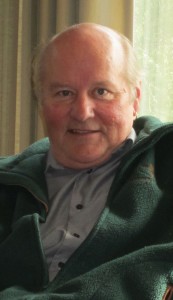 Ray Rivers was born in Ontario; earned an economics degree at the University of Western Ontario. He taught in New Zealand and earned a Master’s degree in economics at the University of Ottawa. His 25 year stint with the federal government included time with Environment, Fisheries and Oceans, Agriculture and the Post office. Rivers left the federal government to consult for private sector and government clients. He completed his first historical novel The End of September in 2012; a story about what might have happened had Quebecers voted for sovereignty association in the 1980 referendum. Rivers is active with ratepayers groups, a food bank, environmental organizations, community journalism and policing. He has run for municipal and provincial government offices and held executive positions with Liberal Party riding associations. He developed the current policy process for the Ontario Liberal Party. Ray Rivers was born in Ontario; earned an economics degree at the University of Western Ontario. He taught in New Zealand and earned a Master’s degree in economics at the University of Ottawa. His 25 year stint with the federal government included time with Environment, Fisheries and Oceans, Agriculture and the Post office. Rivers left the federal government to consult for private sector and government clients. He completed his first historical novel The End of September in 2012; a story about what might have happened had Quebecers voted for sovereignty association in the 1980 referendum. Rivers is active with ratepayers groups, a food bank, environmental organizations, community journalism and policing. He has run for municipal and provincial government offices and held executive positions with Liberal Party riding associations. He developed the current policy process for the Ontario Liberal Party.

 By Pepper Parr By Pepper Parr
August 15, 2013.
BURLINGTON, ON. Two people had a chat one evening. It came about when one of the two telephoned the other. One of the two was as far right on the political spectrum as Attila the Hun while the other was on the left side of the political spectrum – sort of where Tommy Douglas stood.
The lefty didn’t have a clue as to why the right-winger wanted to meet – and knew even less when the meeting was over.
Sometime after that a woman of a certain age was having a friendly drink in an Elizabeth Street establishment and happened upon a man who was quite well into his cups and informed the woman of a certain age that the Conservatives in this city were going to put up a slate of candidates that would fix things at city hall.
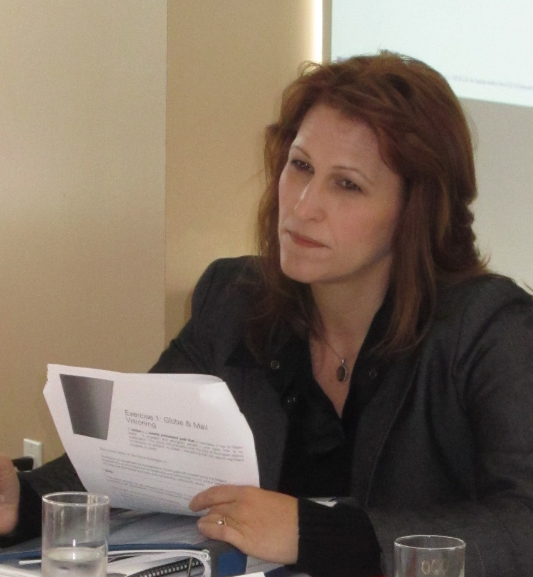 Ward 2 Councillor Marianne Meed Ward. Unbeatable? Some Tory’s seem to think so. The well-informed individual did admit that there would be problems with Ward 2 where Marianne Meed Ward could probably not be beaten but he was confident that the Tories were in for life in Ward 6 where they believed Blair Lancaster could not be beaten.
 Miss Photo Op – never misses a camera opportunity – but then so do most of the other Council members. Councillor Blair Lancaster in the center with Burlington Olympians in red. Ms Lancaster husband is on the far left. The lady of a certain age asked why, given the dis-satisfaction expressed by many of the north Burlington residents, they felt the Beauty Queen could not be beaten? “She was Miss Canada in 1970 you know” was the response. That tiara may have something to do with Lancaster’s 2010 win – but, truth be told she won by 125 votes against a candidate who didn’t live in the ward. If Phil Buck, who shouldn’t have been in the race to begin with, were not on the ballot Mark Carr would be the council member for Ward 6. Carr by the way will not run in 2014.
So where is this Tory sweep going to come from?
Is there a Tory in Ward 1 that can beat Craven?
Can anyone beat Taylor in Ward 3?
There is a very credible candidate in the wings who will run in ward 4 – don’t expect Dennison to run again.
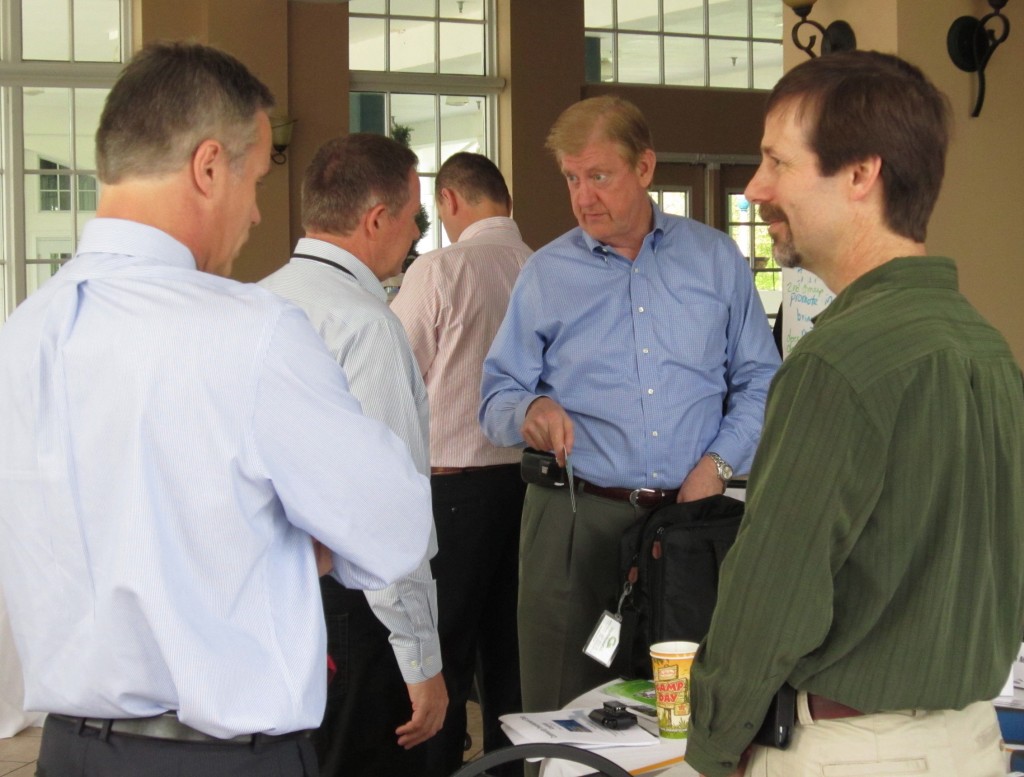 Is Paul Sharman safe in Ward 5? Is he a Tory – and if he is, do the Tory’s want him? They didn’t want Brian Heagle provincially. Is Paul Sharman safe in Ward 5? Is he a Tory – and if he is, do the Tory’s want him? They didn’t want Brian Heagle provincially.
Is the Mayor vulnerable? Is there anyone on the horizon that could come in out of the cold and beat Rick Goldring? It certainly isn’t going to be Carol D’Amelio. Philip Papadopoulos might find he has money he doesn’t need and mount yet another mayoralty campaign.
Perhaps the man in his cups, who has served as President of Burlington Conservative riding associations in the past, was engaged in wishful thinking. Or is there really a cabal out there wanting to fix city hall?

 By Ray Rivers By Ray Rivers
BURLINGTON, ON. August 9, 2013. She only held onto two of the five former Liberal ridings in the Aug 1st by-elections, but I’d have to say Kathleen Wynn was the big winner. By-elections often go the other way for a governing party, especially after a ten year stretch in office. And given the smell around the cancelled gas plants and a couple of other legacy issues, she did better than I expected. The NDP’s Andrea Howarth picked up a couple of seats, no doubt reflective of her party having constructively worked with the minority Liberals to deliver a better budget this year.
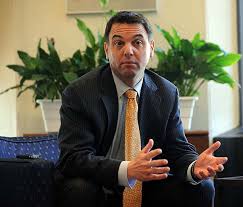 There are many who believe the Conservative win in Etobicoke was a personal win for Doug Holyday and not a win for the party. And the big loser was Tim Hudak. Yes, Doug Holyday took Etobicoke-Lakeshore in a no-surprise victory for the popular former mayor, but Holyday won despite, rather than because of, Hudak. The knives are coming out among the Conservative faithful, tired of Hudak and his Tea Party political platform. After eight years of Mike Harris Ontario residents are not going to buy that extremist right-wing snake oil again. And electors don’t have much time for obstructionist and uncooperative leaders, as US Republicans will likely find out in congressional races next year.
A few weeks ago I did an article on legalizing marijuana; that subject is in the news – again. I had criticized the policies of further criminalizing (2006) and requiring mandatory sentences (2012). And I provided a link to a YouTube clip showing our PM gob-smacked, unable to coherently explain his reincarnation of this failed policy. Then Justin Trudeau promised, only a few days ago, to legalize ‘the weed’, confirming a policy endorsed by his party last year, if his third-placed Liberals could form the next government.
Besides Harper there are others who disagree with legalization. The NDP’s Mr Mulcair, is only promising decriminalization, if he makes PM, though I’ll bet some of his younger caucus members would go further. And the Toronto Star columnist Rosie Dimanno argues that legalizing cannabis would be a stupid idea, in an article full of inconsistencies, thus giving the word dope a whole new meaning. OK, maybe it’s just reefer madness, and she does make a good point about the Mexican model of decriminalizing small quantities of all recreational drugs.
Presumably Harper’s drug policy is about public safety. But how safe are we in other ways? What about the floods that hit Alberta and Toronto – and the hurt that, after all this time, is still ongoing in High River? What about the railway disaster at Lac-Mégantic when we realize that this could have happened to any number of other railway towns? And what about the two sleeping children, discovered asphyxiated by an exotic African snake, kept illegally above a pet shop in New Brunswick? With all we have learned about the dangers of introducing exotic species, why did our federal government allow someone to bring this snake into the country?
A one year minimum mandatory sentence for possessing six marijuana plants seems a severe punishment, hardly fitting that insignificant crime. Yet, what should be the punishment for a reckless federal minister who made the fateful decision to allow the MMA railway to run with a single operator, knowing full well that the train would have to be unattended at night, while he slept? Talk about a teflon-coated government.
And finally, there is the threat of global climate change. It’s true that the PM can’t stop the progress of climate change – it has been developing for far too long and Canada is not a huge emitter of global greenhouse gases (GHG) anyway. But we are vulnerable because of our geography, and we need to plan how to deal with the next big event.
It is incumbent on our political leaders to do more than hide from reality, like the proverbial ostrich with its head in the sand. Stephen Harper needs to put his ideology behind him and have an honest conversation with Canadians about our future climate challenges, and what he is doing to help us adapt to them. And, further, he needs to take steps to restore Canada’s one-time leadership on this issue by promoting global GHG reduction initiatives and embracing home-grown local action – the way the government he replaced was, at least, trying to do.
Ontario has shown national leadership by significantly reducing its greenhouse gas emissions over the last decade. Perhaps that is one of the reasons that enough voters were attracted to the provincial Liberals on August 1st, and an electoral wipe-out was avoided. This could be a winning issue for Mr. Harper as well. It’s better late than never.
Editors note: We think our columnist may be stretching a bit here. He is one opinion – there are others.
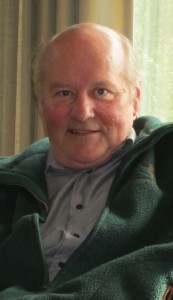 Ray Rivers was born in Ontario; earned an economics degree at the University of Western Ontario. He taught in New Zealand and earned a Master’s degree in economics at the University of Ottawa. His 25 year stint with the federal government included time with Environment, Fisheries and Oceans, Agriculture and the Post office. Rivers left the federal government to consult for private sector and government clients. He completed his first historical novel The End of September in 2012; a story about what might have happened had Quebecers voted for sovereignty association in the 1980 referendum. Rivers is active with ratepayers groups, a food bank, environmental organizations, community journalism and policing. He has run for municipal and provincial government offices and held executive positions with Liberal Party riding associations. He developed the current policy process for the Ontario Liberal Party. Ray Rivers was born in Ontario; earned an economics degree at the University of Western Ontario. He taught in New Zealand and earned a Master’s degree in economics at the University of Ottawa. His 25 year stint with the federal government included time with Environment, Fisheries and Oceans, Agriculture and the Post office. Rivers left the federal government to consult for private sector and government clients. He completed his first historical novel The End of September in 2012; a story about what might have happened had Quebecers voted for sovereignty association in the 1980 referendum. Rivers is active with ratepayers groups, a food bank, environmental organizations, community journalism and policing. He has run for municipal and provincial government offices and held executive positions with Liberal Party riding associations. He developed the current policy process for the Ontario Liberal Party.

 By Ray Rivers By Ray Rivers
BURLINGTON, ON. August 1st, 2013. The Council of the Federation, created in 2003, is a venue for the 13 provincial and territorial jurisdictions in Canada – to discus and resolve on federal-provincial and other inter-jurisdictional matters. Last week Ontario Premier Kathleen Wynn hosted the regular summer get-together at Niagara-on-the-Lake.
There were some modest accomplishments. The Premiers unanimously called on the federal government to conduct an inquiry into the mysteriously missing and/or dead aboriginal women (over 500), following up on a similar request from the National Aboriginal Organization. And for some reason, the premiers’ call was immediately rejected by the federal government.
Progress was made on energy issues, as all but two leaders signed onto an evolving national energy strategy led by Alberta’s Premier Alison Redford. Only B.C., concerned about the proposed Northern Gateway project and Quebec, in the process of suing Nfld over the Muskrat Falls power project stayed away from signing.
Overwhelming consensus came as the leaders jointly condemned the proposed ‘Canada Jobs Grant’. I have been critical of the federal government in the past, and it is because they keep doing things like this. Education and training is primarily provincial jurisdiction, so the fed’s role has traditionally been to top-up provincial programs, acknowledging that local needs are best met by provincial programs. Quebec, in particular, is very sensitive to the feds interfering. https://www.theglobeandmail.com/news/politics/at-summit-canadas-premiers-take-on-a-crowded-agenda/article13412119/#dashboard/follows/.
Regardless, the feds talked with some private sector organizations and then created, what the provinces call, an unworkable ‘one-size-fits-all’ program. And talk about wasting our money, the federal government spent $95,000 per ad for all those ads you had to sit through during the playoffs this year, announcing a program that doesn’t exist, is still a concept and may never see the light of day. And, insult-to-injury, they hadn’t even bothered to consult with the provinces, who are expected to pay for a third of the program. Oh, and the reason for that is because they plan to slash their training contributions to the provinces.
The Council of the Federation’s first big success was in negotiating with Paul Martin to get the Canada Health Accord. Martin had earlier slashed federal payments to provinces, in order to slay the Mulroney-era deficits and the Council needed something more sustainable. And they got the 2004 Canada Health Accord, with guaranteed increases in federal funding until 2014.
That was then and this is now. In total contrast, last year, the ruling Conservatives tabled their plan for health care funding for the decade post 2014. There was no negotiation, just an offer, fait accomplis – take it or else… The Council of Canadians lobby on social issues, particularly health, and had arrived en-mass to rally the Council to press on for a better deal. But the feds weren’t open to discussion – the door was closed.
The premiers also discussed the Senate. There are so many inherent problems with the Senate but reform to a triple-E body, as the PM has asked the Supreme Court to consider, would not make it any better. Would an elected senator best represent the interests of his/her province – better than the provincial government? What if they were at odds? Is this a recipe for a constitutional crisis, pitting one level of government (fed senate) against a provincial government from which the senator was elected? There is already confusion over the sometimes competing roles of the Commons and appointed Senate – imagine if senators were also elected?
It was a missed opportunity for a provincial/territorial ask. Abolish the Senate, don’t reform it. And give due recognition to the Council of the Federation as a consultative body when developing public policy. What could be more vital to this nation’s future than inter-jurisdictional cooperation and what better body to do that than the Council? Imagine if they met more often. I mean even separatist Pauline Marois was happy to participate, discuss and resolve with her fellow Premiers.
How much government do we really need anyway, and does more government mean better government? If I put that question to Steven Harper, I think we’d all know his answer. So, why not do it – why not make government smaller? Put the $100 million we would save by abolishing the Senate into provincial health care programs instead.
The Council of the Federation exists. It offers vital political tension for the confederation. And it could be a useful political ally to a federal government that wants to represent all of Canada and wants to make Canada work better. Indeed the Council would be a better chamber for that ‘sober second thought’ than the dusty, corrupt, old Senate ever has been.
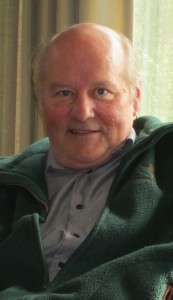 Ray Rivers was born in Ontario; earned an economics degree at the University of Western Ontario. He taught in New Zealand and earned a Master’s degree in economics at the University of Ottawa. His 25 year stint with the federal government included time with Environment, Fisheries and Oceans, Agriculture and the Post office. Rivers left the federal government to consult for private sector and government clients. He completed his first historical novel The End of September in 2012; a story about what might have happened had Quebecers voted for sovereignty association in the 1980 referendum. Rivers is active with ratepayers groups, a food bank, environmental organizations, community journalism and policing. He has run for municipal and provincial government offices and held executive positions with Liberal Party riding associations. He developed the current policy process for the Ontario Liberal Party Ray Rivers was born in Ontario; earned an economics degree at the University of Western Ontario. He taught in New Zealand and earned a Master’s degree in economics at the University of Ottawa. His 25 year stint with the federal government included time with Environment, Fisheries and Oceans, Agriculture and the Post office. Rivers left the federal government to consult for private sector and government clients. He completed his first historical novel The End of September in 2012; a story about what might have happened had Quebecers voted for sovereignty association in the 1980 referendum. Rivers is active with ratepayers groups, a food bank, environmental organizations, community journalism and policing. He has run for municipal and provincial government offices and held executive positions with Liberal Party riding associations. He developed the current policy process for the Ontario Liberal Party

 By Pepper Parr By Pepper Parr
BURLINGTON, ON. July 28, 2013. Comments are an integral part of a newspaper on a website. The ability for anyone to write their opinion right alongside a news item they like or dislike and have that comment stay with the story is a tool that makes public discourse that much more robust.
However, there are some rules. You do not HAVE to tell the public who you are. You can use a “pen” name” but why you would not have the courage of your convictions and be prepared to tell people who you are is beyond me.
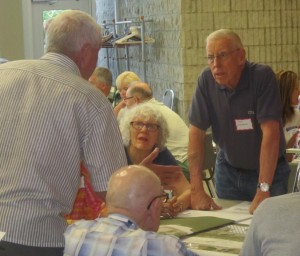 Passionate it was – it was also honest and open dialogue about a major city issue. When a comment comes to us we have to approve each and every one. We test the email address the comment was sent to us from; a significant number fail. People make up an email address and send their message knowing that we can never get back to them.
We do capture their IP (Internet Protocol) address and in the hands of an authority the sender of the message can be traced.
At the Gazette we want to see honest, committed, passionate dialogue between people whose views may differ. We want to see new ideas and viewpoints that would not get expression in traditional media.
We have no problem with a tight, tart comment – call them “zingers” if you wish; they add colour to the public debate. We do however have a responsibility to ensure that the dialogue is fair and honest.
We test the email address a comment comes from; if the address proves to be invalid the comment does not get posted.
On occasion we have posted a comment from an email address that was not valid and added an editorial note advising that we could not verify the sender but felt the comment was worth making part of the public discourse.
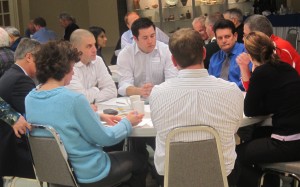 Citizens gather for budget discussions. This meeting involved a number of city firemen who were attentively listened to by Councillor Craven, on the right in the blue shirt. We have had comments from members of the clergy, the legal profession and senior staff members at various levels of government, who, because of the jobs are not authorized to comment. We will publish their comments if we feel they are a legitimate part of the debate.
We have regular contributors to the comments section, many who make very legitimate comment and several who are very good at catching our mistakes – all are valued and welcome.
Those who want to make a comment they know not to be true; those who want to disrupt and deliberately hurt a private citizen – they are not welcome.
Those who want to be able to hold civil servants and elected officials to account – let us hear from you frequently.

 By Ray Rivers By Ray Rivers
BURLINGTON, ON. July 15, 2013. It was a perfect storm. No, I’m not talking about the spectacular rain events that knocked out the great cities of Calgary and Toronto. I am talking about what hit the poor people of the small Quebec town of Lac-Mégantic. We can’t blame global climate change for this disaster – the responsibility lies a lot closer to home.
Rail World Inc. is one of those ‘take-over’ holding companies run by a modern-day tycoon, CEO Edward Burkhard. This rail road entrepreneur also specializes in buying up and privatizing public railroads from ideologically driven governments; running them into the ground, then selling back again for a profit. I’ve personally ridden on the rail systems where Burkhardt’s hands were busy, ruining rail transport in the UK and New Zealand. The formula is simple – sell snake oil, cut the bottom line, and keep cutting until the system is so bad that public outcry forces the governments to buy the rails back.
 Federal regulation let this accident happen. So one of his companies, in this case the Montreal, Maine and Atlantic, used the cheapest rail cars – single hulled and easily punctured – for flammable light crude (Bakken oil). The locomotives, hauling the cars, were so poorly maintained they regularly had engine fires, including on the night of this tragedy Then, the company figured it could save a few more dollars by reducing its operators to one. There would be no backup operator to take over the controls as the train ran from North Dakota to New Brunswick.
So there was nobody at the controls when/if the engineer went to the can, made a bite of lunch, caught a nap, or maybe had a personal incident, like a heart attack? And how could one person have properly set the handbrakes for an overnight stop when the procedure normally required two operators? In the evening the engineer had to leave the train for a good night’s sleep, unlocked, unattended and with the engine running so the air brakes would hold the train.
Lac-Mégantic, with less than six thousand residents, is a part of the glue that brought Canada together into Confederation – ‘a mari usque ad mare’. The town was built as a key juncture linking the Atlantic provinces and the rest of the country by steel rail. So it was such sad irony that the Canadian government was complicit, negligent and ultimately responsible for nearly destroying Lac-Mégantic so many years later. An environmental disaster, a burned-out downtown and as many as 50 people dead. How long will it be before separatist-minded Quebecers demand the federal government relinquish jurisdiction over rail safety to the Province?
One of the most basic roles of government is to ensure public safety. It does this through regulation. Yet the tanker cars, called DOT111, have long been determined unsuitable for hazardous liquids – and what is flammable oil if not hazardous. The risk of an accident has risen sharply since far more oil than ever is being shipped by rail. Unsafe tank cars and lots more of them…. duh? Finally, the federal regulator, in an unusual and thoughtless move, provided approval and authority for the company to run the train with only a single operator and no back-up personnel.
This was the worst rail accident in Canadian history and the worst disaster Quebec has ever seen. It was a perfect storm, an accident waiting to happen, and yet also perfectly avoidable. But isn’t that what happens when a federal government has taken its eyes off the ball – when it is more concerned about just moving cheap oil than about public safety?
Editors note: Since penning this piece the following has taken place:
Transportation safety officials have told Ottawa to rewrite train safety rules in the wake of the tragedy at Lac-Mégantic, Que., suggesting that Canada’s current regulations are too vague and open to interpretation by railway workers that can lead to disaster.
In a pair of letters sent to Transport Canada, the federal body that oversees the rail industry, the Transportation Safety Board said more detailed rules must be created to govern the number of brakes that must be set when parking freight trains, and whether those trains can be left unattended when carrying dangerous cargo.
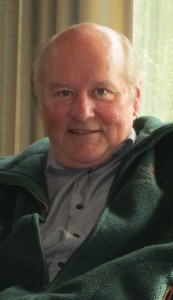 Ray Rivers was born and raised in Ontario and earned a degree in economics at the University of Ontario. He taught at a university in New Zealand for a period of time and then earned a Master’s degree in economics at the University of Ottawa. His 25 year stint with the federal government included time with Environment, Fisheries and Oceans, Agriculture and the Post office. After leaving the federal government he consulted for private sector and government clients. Rivers completed his first historical novel The End of September in 2012. This story about what might have happened had Quebecers voted for sovereignty association in that first referendum in 1980 is set in Ottawa and Montreal. Ray Rivers was born and raised in Ontario and earned a degree in economics at the University of Ontario. He taught at a university in New Zealand for a period of time and then earned a Master’s degree in economics at the University of Ottawa. His 25 year stint with the federal government included time with Environment, Fisheries and Oceans, Agriculture and the Post office. After leaving the federal government he consulted for private sector and government clients. Rivers completed his first historical novel The End of September in 2012. This story about what might have happened had Quebecers voted for sovereignty association in that first referendum in 1980 is set in Ottawa and Montreal.
He has been active in his community including ratepayers groups, a food bank, environmental organizations, community journalism, policing and community associations and service clubs, churches, boy scouts, and community theatre. He has been active politically, running for municipal and provincial government offices as well as heading executive positions with the Liberal Party and riding associations. He developed the current policy process for the Ontario Liberal Party.

 By Ray Rivers By Ray Rivers
BURLINGTON, ON. July 18, 2013. It’s was a good day for the Ottawa printing houses. They were busy churning out new letterheads, business cards and other stationery. The shredder trucks would have been seen, parked outside government offices so that each outgoing minister’s staff could destroy any incriminating evidence of their boss’s tenure, along with all that old letterhead. And of course this was a field day for the pundits looking for a deeper meaning in it all.
Prime Ministers have always kept a fairly tight rein over their cabinet ministers for good reason. There is a danger that liberated, free-wheeling cabinet members might easily go off-message, do their own thing or even go rogue and contradict the PM.
Does the public think that the Ministers have all the good ideas? In normal times much government policy originates with the public service. The minister is not irrelevant in this process, just not as significant as we’d expect from the title and ceremony.
During my time at Environment Canada, I had the privilege of drafting briefing material and speeches for my minister, Jean Charest. He would personalize a speech but always stuck to the script I’d prepared. A Minister’s speech is automatically policy, so I always made sure neither my Minister nor the PM would be blind-sided. Brian Mulroney had adopted Pierre Trudeau’s practice of leaning on Cabinet committees and using the Prime Minister’s Office and the Privy Council Office to co-ordinate policy – so everyone was kept in the loop and the policy was mainly what the PM wanted. After all, the PM chooses his ministers.
Stephen Harper has taken control to new heights, even managing various ministries’ press releases and speeches. So shuffle or no shuffle – it amounts to not much more than a hill of beans. Policy will change only when the PM wants it to change.
Sometimes a PM will bring in a new minister as a way of signaling changes, but make no mistake, it is still the PM making the policy. I am not criticizing the PM for his focus on control – I think he is doing what he needs to do in our system of government, managing to ensure a consistent message and tone.
This Cabinet shuffle by the majority Conservative government saw eight new people added to the Cabinet, a few dropped, but the old guard is still firmly in place doing their old jobs at the key posts. Flaherty will continue to articulate economic policy from his boss, Harper the economist. Baird will continue with his party’s unbalanced foreign policy and Joe Oliver will keep on pushing the tar sands. Expect the same old from the same old.
Given my passion for the environment, I was really pleased to see Peter Kent gone. A good journalist in his day, he looked uncomfortable and almost pathetic as the ‘yes-man’ for Harper’s non-environment policy.
The PM claims he is making a ‘generational change’ with this Cabinet, lowering the average age a full 4 years from 55 to 51. That’s a generational change? And, there are now more female cabinet ministers, which can’t be a bad thing for a party well-known for its boys in blue suits.
It is customary for a government to shuffle a cabinet at the mid-point of its term, and Harper has certainly done that. Just don’t expect this to mean anything will change in the way Stephen Harper runs the country.
The only upside I see in the shuffle is that the Ottawa printing industry had a couple of good days.
 Ray Rivers writes weekly on both federal and provincial politics, applying his more than 25 years as a federal bureaucrat after which he decided to write and has become a political animator. Rivers was a Liberal candidate for provincial office in Burlington where he ran against Cam Jackson in 1995, the year Mike Harris and the Common Sense Revolution swept the province. He is also currently the VP policy for the Ancaster-Dundas-Flamborough-Westdale Federal Liberal Electoral District Ray Rivers writes weekly on both federal and provincial politics, applying his more than 25 years as a federal bureaucrat after which he decided to write and has become a political animator. Rivers was a Liberal candidate for provincial office in Burlington where he ran against Cam Jackson in 1995, the year Mike Harris and the Common Sense Revolution swept the province. He is also currently the VP policy for the Ancaster-Dundas-Flamborough-Westdale Federal Liberal Electoral District

 BY Pepper Parr BY Pepper Parr
BURLINGTON, ON. July 18, 2013. Our MP, Mile Wallace, was in an environment that suits his personality. Flipping burgers and talking to people for Mike Wallace is a very good one-on-one politician. He listens, he usually has a smile for you and his sense of humour prevails.
So there he was on the lakeside lawn of the Waterfront Hotel, flipping burgers and doing his political thing. Later in the day they let him have a microphone to answer questions from his audience – it was a sold out crowd.
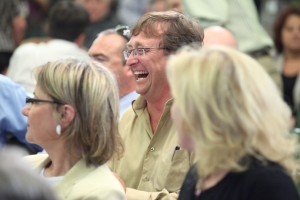 There is usually a smile on Mike Wallace’s face. He enjoys life and has a good time. This summer it is his intention to run in a marathon in every province. During the Q&A Wallace expressed some dissatisfaction with the fact that the current government was not being lauded for the great job that was being done and that instead people were quibbling about minor issues. When asked to comment on what these issues were, he felt that a disproportionate amount of time was being spent on the Senator Duffy matter and not enough time on the big issues both within Canada and internationally.
When I was going over the copy from a correspondent who covered the event for us I had to call and be sure that those words came from Wallace for I was stunned. He did not appear to have any sense as to the gravity of the Duffy matter that had the Prime Minister’s Chief of staff writing a personal cheque to Senator Duffy so that he could repay expenses he claimed and was not entitled to.
Prior to the public learning where the money came from Mike Duffy was on television telling audiences that he and his wife had decided to do the right thing.
Bruce Anderson, a highly;y regarded political analyst said on a CBC program that “issue is far from over, even if it’s not as prominent right now as the shuffle and even if people aren’t paying as much attention to it right now because it’s summertime. I think that the documents that emerged make it even more difficult to believe that the Prime Minister knew nothing about this, make it easier to come to the conclusion that he seems to have something that he wants to hide. It looks as though they are hanging Nigel Wright (Prime Minister’s Chief of Staff) out to dry, that he’s the only person who dreamt this idea up, the only person who ever really knew about it, the only person who didn’t understand that it was wrong, which doesn’t really square with the fact that there were a few days where people called him honourable for doing this and said that he was going to stay and he had the full confidence of the Prime Minister. So I think the police investigation and the opposition research that’s going on mean that this issue is going to come back with a vengeance in the fall.”
Peter Mansbridge, CBC’s senior television anchor then asked Andrew Coyne, columnist with the National Post what he thought. “The payment of $90,000 dollars to a sitting legislator, for whatever purpose,” said Coyne, “ would appear on the face of it to run you at least into jeopardy of several different illegal acts. We know, if these statements made by his lawyers are true, we know that at least three people in the Prime Minister’s Office, plus Irving Gerstein, the head of the fundraising arm, (for the Conservative Party) knew about these potentially illegal acts and apparently did nothing or, certainly in the Prime Minister’s story, didn’t tell the Prime Minister of this. That’s extraordinary. Even if he didn’t know about it, and that’s certainly still possible, but it suggests nevertheless that a tone and an expectation and a set of values were established in the Prime Minister’s Office where you just kind of look the other way at this kind of thing. That’s deeply troubling.”
 Mike Wallace, Burlington MP, takes a closer look at art work at the Burlington Art centre. But for Mike Wallace on a lovely sunny weekday afternoon this was “quibbling about minor issues” when what he wanted people to do was laud the government “for the great job that was being done”.
There are people in Burlington who understand the gravity of what was done when Senator Duffy was given $90,000 and perhaps at some point one of those people will stand up and speak some sense to the MP. In the fullness of time and when the RCMP completes their criminal investigation, the public will learn the truth. Will it make any difference in Burlington?

 By Pepper Parr By Pepper Parr
BURLINGTON, ON. July 16, 2013. To say the report was damaging would be putting it mildly. It was the disaster too many people thought was probable and now they had the evidence of some of the sloppiest record keeping on just what was in the landfill dumped on air park property during the past five years.
Vanessa Warren, the founder of the Rural Burlington Greenbelt Coalition who summed it up with some very tough language.
“The Burlington Airpark has lost their right-to-operate. Every time I have delegated to council, the RBGC (Rural Burlington Greenbelt Coalition) has asked that the Airpark fill site be immediately shut down – now. WHAT What else is in the ground, and where? How safe is our drinking water? How and when will you and the appropriate provincial bodies close the site, test the soils and groundwater’s, and re mediate the damage? How will we re-claim the green in our greenbelt?”
 I have also repeatedly asked “when does an airpark become a dump” – and now we know the answer: according to Terrapex, the consulting firm hired by the city, the airpark is “an unlicensed waste disposal site” – it doesn’t get much more succinct than that.” I have also repeatedly asked “when does an airpark become a dump” – and now we know the answer: according to Terrapex, the consulting firm hired by the city, the airpark is “an unlicensed waste disposal site” – it doesn’t get much more succinct than that.”
Warren knew that “It’s about to be summer break, and this afternoon the tail gates were still banging at the airpark. The neighbours inform me that they understand Mr. Rossi is now selling tickets at $85.00 a truckload, and there are concerns he is accepting flood waste sludge from the City of Toronto.
“We are extremely concerned for the neighbours of this Airpark; Rossi, and King Paving and Aecon have dumped contaminated waste on our Greenbelt protected countryside, and potentially contaminated our prime agricultural soils, our streams, our groundwater, and our drinking water wells.”
“What else is in the ground, and where? How safe is our drinking water? How and when will you and the appropriate provincial bodies close the site, test the soils and groundwater’s, and re mediate the damage? How will we re-claim the green in our greenbelt?”
“We can’t talk about expansion, we can’t talk about economic benefits, we can’t talk about Cessna’s or jets – all we can talk about now is that the airpark is a dump in the middle of our protected countryside, and now, its everyone’s problem.
 Warren thanked the city and added that,” regardless of how damming and horrifying this report is, the City, and its wonderful staff, deserve a huge amount of credit for the way in which it has aggressively faced the airpark issue since our very first meeting in May. This is a devastating report, and it is what we all feared, but it is so much better out in the light of day than buried under hundreds of cubic metres of waste. Warren thanked the city and added that,” regardless of how damming and horrifying this report is, the City, and its wonderful staff, deserve a huge amount of credit for the way in which it has aggressively faced the airpark issue since our very first meeting in May. This is a devastating report, and it is what we all feared, but it is so much better out in the light of day than buried under hundreds of cubic metres of waste.
“This toxic waste disposal site and adjoining lands and streams must be decontaminated. Neighbouring wells must be immediately tested. The damages done to the environment, the lands, the waters, the neighbours must be corrected, and properly and fairly compensated.”
Warren thanked the city for the work it has done to date, now, she said your job is to keep communicating.
During a presentation to city council Scott Stewart laid out the agenda. He meets Today or on Wednesday with Ontario Ministry of the Environment staff to hear their comments on a report they were given Friday of last week. Stewart and the legal counsel the city has hired meet with the Air Park people on Thursday.
The air park, now defined as a dump in a report given to the city last week, will either be closed by the end of the week or the city will be in front of a judge asking that it be shut down.
Somehow however one wonders if it is going to be that easy.

 By Ray Rivers. By Ray Rivers.
BURLINGTON, ON. July 12, 2013. Five by-elections on August 1st. Tim Hudak is betting on Mr. steady-as-he-goes, Doug Holyday, to plant the PC flag in Etobicoke-Lakeshore. Very early polls had shown Liberal candidate Peter Milczyn with a healthy margin, but that was prior to Holyday entering the race.
Five by-elections is a very gutsy roll of the dice for the new Premier Wynn. It’s mid-summer and PC supporters will be out there, as they always are, but a lot of the other voters won’t. Also, sitting governments are usually strategically disadvantaged when it comes to by-elections, since voters use these occasions to vent. And, Kathleen’s government is still reeling from the gas plant cancellations ordered by her predecessor. Nothing upsets an electorate more than thinking their government wastes their money for political expediency.
Dalton McGuinty’s boldest moves were in the environment. Ending Oak Ridges Moraine development, banning toxic lawn chemicals, creating a Green Belt for southern Ontario and phasing out dirty coal plants were highlights. The plan was to replace coal with wind and solar energy, backed-up by natural gas. Ontario would lead the country in developing renewable energy technology and creating green jobs. And the plan was in place, working and gaining momentum. Thousands of new jobs have been created and wind now produces as much electricity as coal. Then, in the face of a ‘not-in-my-backyard’ revolt in the last election, McGuinty broke with his energy plans and cancelled the half-built gas plants.
So energy will be a topic in these by-elections. Premier Wynn is slowing and moderating the energy program, but staying the course. And, she is generally supported by the NDP’s Horwath, promoting an even greater shift to renewable energy and conservation. But the PC’s Hudak doesn’t agree.
He would turn back the clock, fire up the coal plants with new vigour and wipe green power from the face of the province. And, Hudak is pretending that he can cancel the iron-clad renewable energy contracts, already in place. He’d have as much luck as McGuinty had, trying to cancel Harris’ 407 give away to that Spanish consortium.
In any case the renewable contracts amount to a tiny fraction of our energy costs – far less than the debt on the aging nuclear plants we pay for with each hydro bill. Plus, the Liberals have had to make up for the years of Harris’ neglect of our energy system. So it is little wonder that energy costs, like gasoline prices, are rising and will do so under any political party.
Hudak’s energy policy is false, half-baked and out-of-step with energy policies everywhere – pure wishful ignorance. Don’t believe me? See what the other media say. Going back is not really moving forward, especially when your only plan is burning coal again. That is not being a conservative, it’s being a contrarian. Still, not every voter pays attention to the policies of the party they end up voting for, and the PCs may win one or more of these by-elections.
 And former Etobicoke mayor Holyday may well be one of them. He is so well-known and liked that he didn’t even need to campaign in the last municipal election. And voter recognition is a big part of getting elected to anything. Some might call him on his hypocrisy, leapfrogging to a higher level of government after having so harshly condemned others (Olivia Chow), but that won’t deter those voters who keep electing him. And former Etobicoke mayor Holyday may well be one of them. He is so well-known and liked that he didn’t even need to campaign in the last municipal election. And voter recognition is a big part of getting elected to anything. Some might call him on his hypocrisy, leapfrogging to a higher level of government after having so harshly condemned others (Olivia Chow), but that won’t deter those voters who keep electing him.
Doug Holyday is a true conservative cut in the moderate mold of conservatives of his generation, as opposed to those on the extreme right, like Mr. Hudak. So, in some ways he could be a moderating voice, to keep Hudak from acting like he is leading the Tea Party. Some would admire Holyday for his blind loyalty to the mayor, as his deputy, through all the troubling days and childish antics of Rob Ford. But if I lived in Etobicoke-Lakeshore, I’d want to know why.
Why did Holyday never challenge Mayor Ford on his conflict of interest – on the crack-cocaine video, and all those other issues he must have disagreed with? And what does that tell us about him and what he would do at Queens Park? Is he ethical but just afraid to speak up? Will he be his own man, represent the best interests of his constituents, or will he go-with-the-flow like the other desk thumping seals? And will he challenge Tim Hudak on energy, so his party can come to a sensible policy?
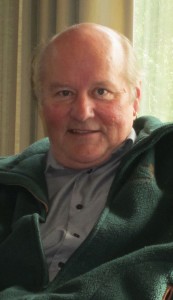 Ray Rivers writes weekly on both federal and provincial politics, applying his more than 25 years as a federal bureaucrat after which he decided to write and has become a political animator. Rivers was a candidate for provincial office in Burlington where he ran against Cam Jackson in 1995, the year Mike Harris and the Common Sense Revolution swept the province. Ray Rivers writes weekly on both federal and provincial politics, applying his more than 25 years as a federal bureaucrat after which he decided to write and has become a political animator. Rivers was a candidate for provincial office in Burlington where he ran against Cam Jackson in 1995, the year Mike Harris and the Common Sense Revolution swept the province.

 By James Smith. By James Smith.
BURLINGTON, ON. July 8, 2013.
James Smith usually goes on about transit or waxes eloquently about the Freeman Station which he is in the process of saving. Over the weekend he apparently stumbled across a city staff report about trees and – well he kind of lost it.
Guelph has one.
So does Oakville.
Toronto? Check.
Burlington? Nope.
I could be speaking about any number of things like reliable, well-funded Transit but in this case it looks like we won’t be getting a Private Tree Bylaw either if one reads the Private Tree By Law feasibility study about to go to council. Burlington it seems is keeping to its long and proud tradition as depicted on our Coat of Arms
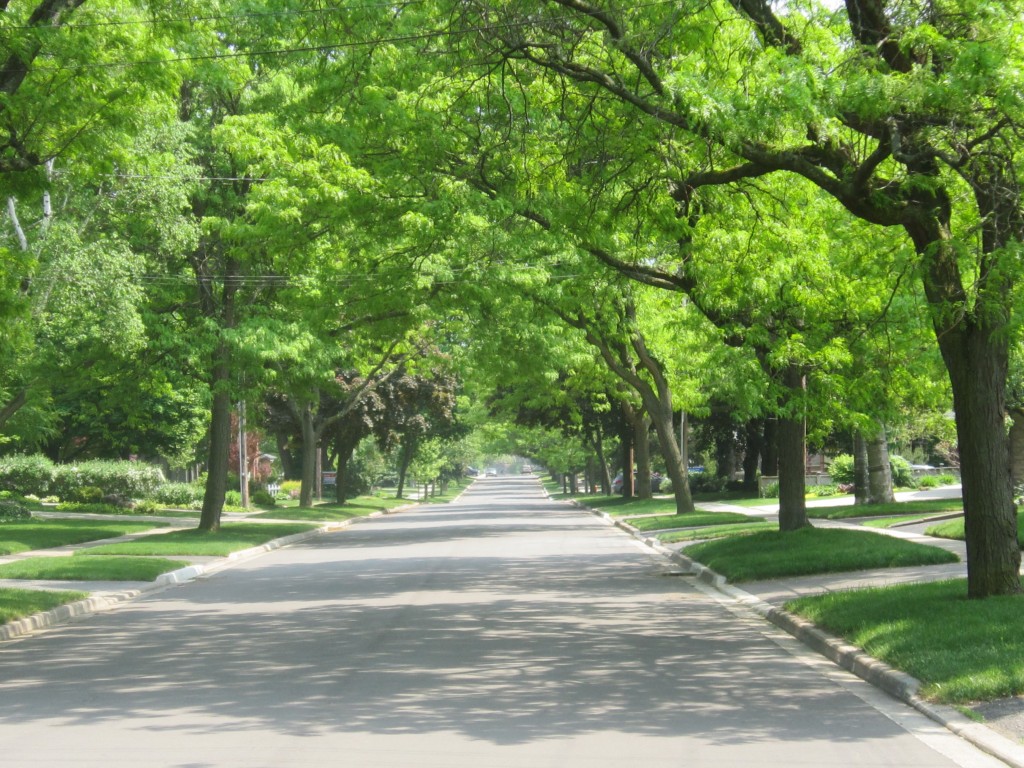 This tree canopy on Belvinia in the Roseland community is a large part of what the older part of the city is all about. Beautifully shaded streets with trees that add value to every house on the street. Most of these trees are on city owned property. To be fair, council has started, if it’s not too much of a bother, the process of maybe, possibly, sometime looking at a private Tree bylaw. Rather than ask staff to craft a tree by-law Council asked for a feasibility study, and in May they told City Staff “no recommendations”, instead we get “options”. The report spills a lot of ink on background, you know, like why trees are important, applicable statues, methodology, numbers of trees cut down every year by Arborists, (about 1,800) and the results of surveys and consultation. Oh, we’ve been consulted, we’ve been telephoned and online surveyed, research firms hired, and public meetings held. City staff tell us they have 71,571 “Touch Points” (- frankly I don’t like the sound of that term at all). 71,571 sounds like a big number until you read that 68,000 of these “Touch Points” come from the City’s version of Pravda- AKA- City Talk- the thing that only wonks like me, & high school civics students (reluctantly) read.
 Did I mention consultants? Burlington LOVES her consultants, Forum Research provided 31 pages of survey data that supports the community’s view that Trees are important!! Fifty Nine percent suggested more needs to be done to protect trees. A one page spread sheet and four paragraphs are included in City Staff’s portion of this feasibility study that superficially addresses what other cities do and do not do to protect trees on private property. What towns have them, number of times amended, number of annual infractions, fines, staff required, number of permits issued and fees, exemptions and a one word answer if the by law is effective. Did I mention consultants? Burlington LOVES her consultants, Forum Research provided 31 pages of survey data that supports the community’s view that Trees are important!! Fifty Nine percent suggested more needs to be done to protect trees. A one page spread sheet and four paragraphs are included in City Staff’s portion of this feasibility study that superficially addresses what other cities do and do not do to protect trees on private property. What towns have them, number of times amended, number of annual infractions, fines, staff required, number of permits issued and fees, exemptions and a one word answer if the by law is effective.
Did I say we had meetings? Burlington city hall loves its meetings almost as much as it loves its consultants. Burlington carries on its proud tradition of meetings. Talking and meetings, give the impression that work is actually being done. One may point to all the meeting minutes, and reports and addenda produced from which a report is dutifully presented. It all looks like an issue is being tackled, decisions being formulated, and our staff resources put to good use.
Poppycock.
Here are City Staff’s Options:
Decide against implementing a Private Tree Bylaw
Direct Staff to Draft a Private Tree Bylaw
Increase Public Education and Awareness
Enhance public Participation and Involvement
Identify Partnerships with the community to Enhance Tree Planting Programs.
Delegate Responsibility for the protection of woodlots between 0.5 ha and 1.0 ha to Halton Region.
Wow, what did this cost in staff time and consultants? Furthermore, staff recommends all of these options, with the notable exception of actually crafting a tree by-law. Really. Burllingtonians, 59% of us want more tree protection, but City staff who were specifically asked not to included recommendations, opine that they don’t support a Private Tree By-Law! Out of whole cloth and with little or no back-up this statement heading appears: ” Support for a bylaw regulating trees on private property is low” In my book 59% is still pretty good, given that Don’t Support, and Don’t Know/Don’t Care are about equal.
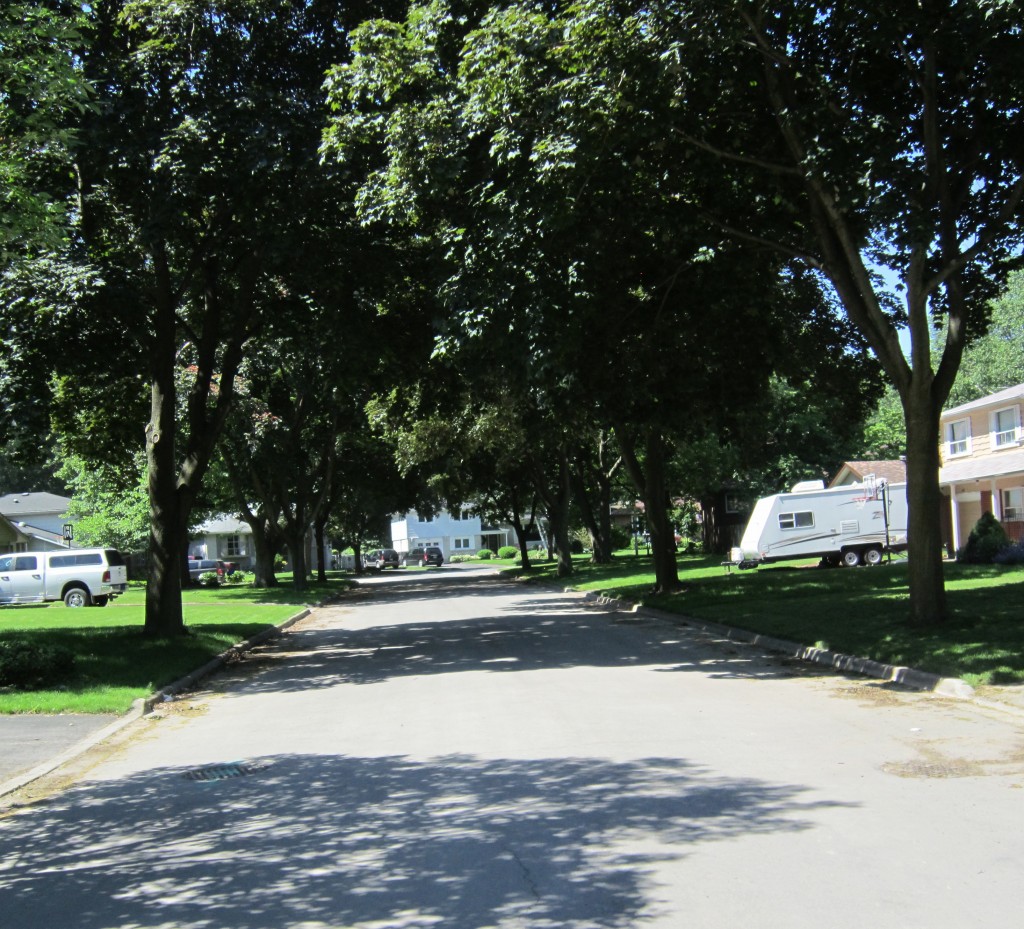 Every tree on this street is on private property. Every property owner has the rigght to cut down the tree on their property. If one comes down – so what? If five come down will those five people have lessened the value of the properties on the street? If they all come down – would anyone want to buy property on this street. That’s what a Private Tree Bylaw is about. So where does this statement come from? Could it be the many members of vested interests who made their way into the public meeting on the subject? Could it be the way the on-line questions were asked to give a desired result? One example: The on-line survey did not ask WOULD YOU SUPPORT A PRIVATE TREE BY-LAW but rather cunningly asked: “If the city of Burlington was considering a household tax increase to preserve and protect the urban forest, for which of the following initiatives would you like to see the funds allocated?” and seven choices were presented. Funnily enough, 47% replied they will not support a tax increase for any reason. I wonder how these folks feel about the $300,000 for taking the memorial out of Joe Brant?
 Lets look at this a little more critically, the city of Oakville have staff of exactly one person to run the tree by-law, Guelph has 4. if part of the reason staff have drawn the conclusions they have is a result of little support for taxes increased to be spent on one position, can we not find the money in existing programmes? What about permits and fines? Surely this can be a self funding office,! I would argue it could generate a surplus to fund some of the other wacky stuff city staff actually want to do. My conclusion is, for some reason, city staff don’t want the headache of an office that actually does stuff, but would rather play with Adobe Suite making marketing plans that the people of this town really don’t give a squirrel’s tail about. Otherwise why would they have devised a process designed to produce these results? Make no mistake, one just has to make it through the report and read how the on-line questions have been asked, to come to the same conclusion. It is either that or one must ask if city staff is up to the task. Lets look at this a little more critically, the city of Oakville have staff of exactly one person to run the tree by-law, Guelph has 4. if part of the reason staff have drawn the conclusions they have is a result of little support for taxes increased to be spent on one position, can we not find the money in existing programmes? What about permits and fines? Surely this can be a self funding office,! I would argue it could generate a surplus to fund some of the other wacky stuff city staff actually want to do. My conclusion is, for some reason, city staff don’t want the headache of an office that actually does stuff, but would rather play with Adobe Suite making marketing plans that the people of this town really don’t give a squirrel’s tail about. Otherwise why would they have devised a process designed to produce these results? Make no mistake, one just has to make it through the report and read how the on-line questions have been asked, to come to the same conclusion. It is either that or one must ask if city staff is up to the task.
After who knows how many staff hours, and work by well paid consultants, Burlington City council once again is set to live up to their tradition by abandoning anything close to a vision of what kind of city we should build. Heck, we can’t even follow good examples from other cities in the GTHA. Meanwhile mature trees are set to be cut down trees on Ghent Avenue, and through out the city.
Oh, and Burlington’s Coat of Arms? Why by now you should know that our Motto below the Shield reads: STAND BY

 By Ray Rivers By Ray Rivers
BURLINGTON, ON. July 6, 2013. We are all Albertans in this time of their crisis. Some called it a thousand-year flood but it’s enough to say it was unprecedented. And if you are looking for the blame game, there is lots to go around – building houses in a flood plain, failure to implement a flood management plan, timely reaction to weird weather and, of course, global climate change. Researchers with the US Department of Agriculture, half a decade ago, predicted the onset of extreme rainfall events for prairie grasslands. Isn’t that exactly what we just witnessed in Alberta?
By now you’d think that every informed person would understand the relationship between greenhouse gases (GHG) and climate change. According to Canada’s latest emissions inventory Alberta generates over a third of the country’s emissions, up by a half since 1990, and far more than any other province. As an aside, Ontario’s emissions have fallen over that period thanks, in part, to Dalton McGuinty’s energy plan.
Canada accounts for only a small percentage of global GHG emissions, though we are among the biggest culprits given our population. Once upon a time Canada supported the Kyoto protocol, the international treaty on emission reductions. We had committed to reduce our emissions by 6% but were failing miserably. When our emissions sky-rocketed by 19% Mr. Harper finally pulled the plug. Why make promises you have no intention of keeping?
Most of Canada’s GHG emissions come from fossil fuels and the second largest source is oil and gas production, which is spiraling upwards as Alberta develops its tar sands. According to James Hansen, one of the most credible climate change scientists on the planet, there is twice as much carbon in the tar sands as in conventional oil. It’s like burning a second barrel of oil just to get the first one.
The tar sands reserves are huge, but remote and thus barely developed, since the bitumen needs to get to a market. Building the Keystone XL pipeline to refineries in Texas would solve that problem and add a million barrels of production a day. So, Hansen is a fierce critic of the pipeline. He believes that the building the pipeline would be “game over” for the environment and has urged US President Obama not to approve it for that reason. Obama has expressed his concerns about climate change but the betting is split on whether he’ll approve it or not.
The PM, like me, was trained as an economist. However, I suspect he missed the lecture on externalities – the law of unintended consequences, a concept that goes back to Adam Smith. The toxic slag heaps, the poisoned and dying wildlife, and the warming of the planet are all unintended consequences of developing the tar sands. The profits from the tar sands go to the oil companies but the unintended consequences fall on the rest of us.
Mr. Harper has spent over a billion new dollars on the military since he came to office, yet on this topic, he turns a deaf ear and a blind eye. Back in 2010 he was warned by senior officers that “Climate change has the potential to be a global threat of unparalleled magnitude and requires early, aggressive action in order to overcome its effects.” But Stephen Harper has been a climate change denier and out of touch with this reality. And in a vulnerable northern nation, like Canada, that is scary.
Climate change is global, The consequences could happen anywhere but the stars aligned to make it Alberta this summer. Albertans are like most other Canadians and care about the risks we take with the environment and the legacy we leave our children. But Mr. Harper is a transplanted Albertan, maybe that accounts for his attitude, beliefs and prejudices. So don’t expect the PM to move proactively on an environmental issue he doesn’t believe in. Rather, Canada will have to wait for the US – for Mr. Obama’s decision on the Keystone pipeline – before it get’s worse.
 Ray Rivers writes weekly on both federal and provincial politics, applying his more than 25 years as a federal bureaucrat after which he decided to write and has become a political animator. Rivers was a candidate for provincial office in Burlington where he ran against Cam Jackson in 1995, the year Mike Harris and the Common Sense Revolution swept the province. Ray Rivers writes weekly on both federal and provincial politics, applying his more than 25 years as a federal bureaucrat after which he decided to write and has become a political animator. Rivers was a candidate for provincial office in Burlington where he ran against Cam Jackson in 1995, the year Mike Harris and the Common Sense Revolution swept the province.

 By Ray Rivers By Ray Rivers
BURLINGTON, ON. July 2, 2013 Canada was the first nation in the world to ban cannabis, back in 1923, driven to action by a transplanted Alberta magistrate, eugenicist and racist, pen-named ‘Janey Canuck’. A prolific Maclean’s Magazine columnist whose book, ‘The Black Candle’, warned about the dangers of “Chinese opium peddlers” and “Negro drug dealers;” she convinced legislators to adopt prohibition without a word of public debate.
So it was fitting that Maclean’s, in a recent issue on cannabis, reviewed the facts, acknowledged the error of its ways, and is now calling for legalization. The facts can be summarized as follows:
1. Safety. Well nothing is perfectly safe, but puffing ‘weed’ is safer than drinking alcohol, smoking cigarettes, or adding salt to your steak. It is not addictive, doesn’t ‘gateway’ to other drugs, and smoking doesn’t cause cancer – in fact, may protect against it.
2. Wasting resources. I thought this would appeal to fiscal conservatives, but alas! Enforcement is costly, so is imprisonment and so are the courts. People behind bars aren’t contributing to the economy, they are draining it.
3. Protecting Children. Despite prohibition, more Canadian children have tried ‘grass’ than anywhere else in the west, including decriminalized Spain.
4. Eroding societal values. If the law is an ass, people will ignore it and hate the cops. Legalization would kill black-markets and gangsters faster than a speeding bullet. And aren’t prisons just training academies for inmates wanting to become better criminals?
5. Provincial budgets. The LCBO gives1.2 billion dollars a year to the provincial government, in addition to the 13% HST and 10% licensing fee. Why wouldn’t we want to regulate the production and sales of recreational cannabis and use the revenues to pay for public services?
‘The Black Candle’ was wrong, but it is never too late to do the right thing. Back in the early 1970‘s The Royal Commission on the Non-Medical Use of Drugs (LeDain Report) called for de-criminalization of cannabis. In 2002 a Senate committee reported that “… drug legislation was largely based on a moral panic, racist sentiment…” and also called for legalization. Chretien and Martin started drifting towards de-criminalization but then Stephen Harper, another transplanted Albertan, like Ms. Canuck, came along to reverse progress. Drug enforcement is back big time. Today growing six hemp plants will get you an automatic 6 months in the big-house.
Richard Nixon’s war on drugs in the US was an absolute failure. Jails are half-filled with drug inmates, drug crime is at an all-time high and drug use in America has never been higher. In light of this, many states have taken action to start decriminalizing drugs. Washington and Colorado, are legalizing, developing infrastructure and rules for cultivation and marketing. The US feds, like their Canadian counter parts, have ultimate jurisdiction, but they’re not interfering. Is that because their last three presidents were self-proclaimed potheads?
Stephen Harper claims to never have smoked ‘pot’. So his head should be clear – right? Not at all. Last year, addressing the Summit of the Americas, he admitted “…that the current approach is not working. But it is not clear what we should do.” Still ignorance hasn’t deterred him from going back to what doesn’t work – aggressive criminalization.
Since the Conservatives came to power in 2006, drug-related arrests have mushroomed by 41% and over 400,000 people have been arrested. And, Harper can’t even articulate why. In a 2010 YouTube clip the PM miserably failed to make a single coherent point in defense of his neo-con drug policy – just ended up mumbling something about drug cartels.
Now, if Harper is concerned about drug cartels he needs to visit Mexico. That country used to have one of the toughest policies on drugs anywhere, which ultimately led to its deadly drug wars. The wars became so vicious that the Mexican government has now decriminalized small quantities of all major narcotics.
Of course, Mr. Harper should have gone to learn the Mexican experience before he saddled us with his ill-advised, retro drug laws. And why not take along his conservative ally, Rob Ford? Toronto’s controversial mayor might be interested to know that smoking crack-cocaine is now legal in Mexico.
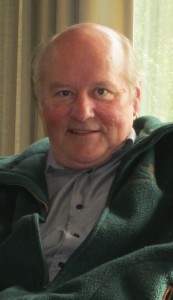 Ray Rivers writes weekly on both federal and provincial politics, applying his more than 25 years as a federal bureaucrat after which he decided to write and has become a political animator. Rivers was a candidate for provincial office in Burlington where he ran against Cam Jackson in 1995, the year Mike Harris and the Common Sense Revolution swept the province. Ray Rivers writes weekly on both federal and provincial politics, applying his more than 25 years as a federal bureaucrat after which he decided to write and has become a political animator. Rivers was a candidate for provincial office in Burlington where he ran against Cam Jackson in 1995, the year Mike Harris and the Common Sense Revolution swept the province.
The views of the author are his alone

 By Ray Rivers By Ray Rivers
BURLINGTON, ON. June 24, 2013. I grew up in the back woods of Ontario with a party-line phone. Everybody listened to everyone else’s conversations, and the rumour mill churned faster than Coronation Street. At university, we spent more time speculating who the narcs were tapping than we ever did smoking. Working in Ottawa, I recall a well-placed senior bureaucrat, who despite his high-level position in the Canadian government was a self-avowed communist, and so convinced his house was being bugged he refused to talk politics.
 So I got used to people listening in. When the story broke recently about the Obama administration continuing the Bush electronic surveillance program, I initially just shrugged it off. I mean wasn’t that the kind of program which caught the Toronto 18 and almost got the Boston 2. If you’re not planning evil, then you have nothing to worry about, I reassured myself. And it’s the authorities who are doing the monitoring – they wouldn’t abuse their power. There must be something more important to worry about. So I got used to people listening in. When the story broke recently about the Obama administration continuing the Bush electronic surveillance program, I initially just shrugged it off. I mean wasn’t that the kind of program which caught the Toronto 18 and almost got the Boston 2. If you’re not planning evil, then you have nothing to worry about, I reassured myself. And it’s the authorities who are doing the monitoring – they wouldn’t abuse their power. There must be something more important to worry about.
 Listening has something to do with freedom of speech? You don’t say. How can listening in on conversations have anything to do with freedom of speech? And how could a meta-data computer be more intrusive that the cameras catching your every move in a public toilet cubicle? By comparison, the streets in the UK are blanketed with closed circuit TV cameras, according to the TV show MI5. Surveillance is just one of those compromises we need to make for security in this crowded, complex world that has evolved. So what is the big deal?
The big deal is the slippery slope. Big Brother is really here! Thank goodness for whistle-blowers, like Edward Snowden, who are forcing the debate about how far a state can go riding roughshod over our constitutionally guaranteed rights to privacy, and by extension, freedom of expression. But now, that everyone knows the state is listening in, how effective can this snooping be? The professional terrorists will just find other ways to communicate, like the burner cell phones used in the TV series The Wire. And the government will still be collecting troves of personal information on the rest of us – and looking for another way to use it?
Back home, it is no surprise that Canada is in-step with the Americans, conducting warrantless electronic surveillance, started as part of the Anti-Terrorism Act back when Canada was heavily engaged in the Afghanistan conflict . The snooping was put on pause over privacy concerns in 2008, but Mr. Harper brought it right back after his election victory in 2011 – at the same time he was killing the long gun registry.
Stephen Harper would not suffer the long gun registry because a handful of hunters and farmers thought it violated their privacy. It seems government recording a rifle’s registration number is dangerous. Yet, the Harper government has no trouble recording and listening in on our every personal conversation. Indeed, there is silence among the Tory libertarians, who don’t give a stuff about this violation of privacy and where it may lead. Or, are they just being a bunch of desk-thumping seals that according to former Alberta backbencher, Brent Rathgeber, best describes the Harper Conservative caucus?
 Ray Rivers writes weekly on both federal and provincial politics, applying his more than 25 years as a federal bureaucrat after which he decided to write and has become a political animator. Rivers was a candidate for provincial office in Burlington where he ran against Cam Jackson in 1995, the year Mike Harris and the Common Sense Revolution swept the province. Ray Rivers writes weekly on both federal and provincial politics, applying his more than 25 years as a federal bureaucrat after which he decided to write and has become a political animator. Rivers was a candidate for provincial office in Burlington where he ran against Cam Jackson in 1995, the year Mike Harris and the Common Sense Revolution swept the province.

 By Ray Rivers. By Ray Rivers.
BURLINGTON, ON. June 18, 2013. We’re not talking ice cream cones. Collecting income from two separate sources is called double-dipping. Most of us have probably double-dipped at some point in our lives. Maybe we taught evening classes while drawing a salary for the day job? Or perhaps we drove the courtesy van at Canadian Tire, or greeted at Wal-Mart while drawing a CPP or OAS pension. This double-dipping is a natural part of our capitalist culture – by earning as much income as we can, we help grow the economy. There is nothing wrong with double-dipping.
I was surprised, however, that Justin Trudeau was collecting speaking fees while also serving as member of Parliament. I thought politicians were eternally hunting for a soap box, and were happy if only it were free. But Trudeau actually got paid. Well, politics is a complicated, dirty business, as Justin found that out when the Conservative-linked Grace Foundation demanded their money back, just to embarrass him. In the midst of the Senate debacle and with the PMO (Prime Minister’s Office) being investigated by the Mounties, Mr. Harper sank even lower than I thought he could go.
Trudeau might have known it was a trap. Why else would the Conservative leaning Grace Foundation invite the soon-to-be-crowned leader of the Liberal Party to speak. And why pay him $20,000 when anyone could have just turned on the TV or gone to one of his stump speeches. And, if you are good Conservative would you really go to listen to the son of the most despised man in Conservative history? Almost a year after he spoke, Grace demanded their money back. But somehow the letter went to the Prime Minister’s Office, which circulated it far and wide, before even Trudeau had seen it. And it worked, Harper embarrassed Trudeau.
 This is not what the political junkies mean by Double Dipping. To be clear, Justin wasn’t in any kind of conflict of interest, although this raises a question about the nature of his job as MP and his commitment to serve the people. I think he was wrong to charge for the speech, and he obviously agrees since he has offered to repay everyone. In fact, this whole incident says more about the PM, Grace and their board of directors than it does about Trudeau. The Canada Revenue Agency conveys charitable status only to organizations which do not “seek to further the interests of a particular political party”. And Grace’s actions should now place their charitable status in jeopardy, but don’t count on it with this government firmly in control.
I was also surprised to learn that senators, like Pamela Wallin, are permitted to serve on corporate boards, where she would be party to corporate decision-making based, in part, on government policy before them. There is no question that an airline or an investment house would benefit from inside information on evolving government policy. Why else would they have been willing to pay over a million dollars? Wallin was taking Doube Dipping to a new level.
And wasn’t she being paid to attend to business in the Senate when she was double-dipping to pick up all those lucrative earnings? By definition doesn’t this make the Senate her part-time job? The fact is that the Senate isn’t a full-time job and it’s not even a serious business. We can complain about senators like Wallin, Duffy, Brazeau or Harb – but really – isn’t the problem more with the Senate itself than the occupants. The Senate doesn’t fit our governance model because there is no place for a Senate in a Parliamentary democracy. It is time for it to go.
Editors note: Back in the ‘good old days’ several of the bigger banks has Board members who were Senators that sat on the Senate Banking Committee that set the rules on bank behaviour.
 Ray Rivers writes weekly on both federal and provincial politics, applying his more than 25 years as a federal bureaucrat after which he decided to write and has become a political animator. Rivers was a candidate for provincial office in Burlington where he ran against Cam Jackson in 1995, the year Mike Harris and the Common Sense Revolution swept the province. Ray Rivers writes weekly on both federal and provincial politics, applying his more than 25 years as a federal bureaucrat after which he decided to write and has become a political animator. Rivers was a candidate for provincial office in Burlington where he ran against Cam Jackson in 1995, the year Mike Harris and the Common Sense Revolution swept the province.

 By Ray Rivers. By Ray Rivers.
Burlington, ON. June 13, 2012. – The one thing about giving advice on the economy is that you usually can find at least one person to agree with you and a lot of others who will disagree – almost no matter what advice you give. Ergo, I got a healthy response to my message last week – that if we are contemplating adding to the tax burden; to build transportation infrastructure, pay off the debt, or whatever; we need to be thoughtful about how we do it. We are a wealthy society, by anyone’s account; that is, unless you are middle-class or poor.
 Don’t you just love the political process. These are the few, the ones you hear about – there are thousands who serve diligently and honestly year after year. A 2008 study by Statistics Canada concluded that between 1980 and 2005, median earnings among Canada’s top earners rose more than 16 percent while those in the bottom fifth saw their wages dip by 20 percent. Armine Yalminizyan, a senior economist at the Canadian Centre for Policy Alternatives, concluded that… “The biggest economic boom since the 1960’s has basically only boosted the rich, leaving the middle class stagnant and the poor worse off. In the 1960s. as the economy grew this rapidly, almost everybody got a bigger piece. In this generation of economic growth, the gains are accruing primarily to those on top.” While we are looking forward to an updated report from Stats Can, we should be confident that this picture hasn’t improved.
In the 1980‘s our governments, in Canada and the US, slashed the top tax rates and shifted the tax burden onto the middle classes. Any first year economics student could have predicted the outcome of this deliberate adventure in retro-grade social engineering, and the winners and the losers that were created. Trickle down economics, the silly notion that the poor live better when the rich get richer, is bogus and it’s nonsense. The poor aren’t better off watching the wealthiest get even wealthier. Cheap credit and cheap imports may make their lives seem richer, but in the end it is just more debt to pay back. We are engaging in class warfare – not yet war, but wait for it. Remember the ‘Occupy Movement’?
According to a 2006 documentary, The One Percent, a mere 1% of Americans owned almost half the wealth in the USA. In 2009 they earned 17% of the national gross income and took home over a trillion dollars. Middle-income earners, by contrast have had to live on lower household incomes, adjusted for inflation, than they did in 1996. The Conference Board of Canada places Canada sixth worst, behind the US and UK on their ‘inequality index’. Still, the rapid growing decade from 1997 to 2007 saw the top income earning 1% of Canadians take home fully a third of our increase in national income, a greater proportion than in the US.
This is a serious issue and requires a serious discussion and serious action. Inequality spurs more inequality – greed leads to more greed. Wallin and Duffy earned healthy incomes as respected journalists and, no doubt, each receives a healthy pension from those jobs. In addition, Wallin reportedly earned hundreds of thousands (Editors note: It was actually more than $1 million) as a board director while she was a senator. And, they each make over a hundred thousand dollars as senators. Did they really need to cheat on their expense claims as well?
But then isn’t this what greed does to us?
 Ray Rivers writes weekly on both federal and provincial politics, applying his more than 25 years as a federal bureaucrat after which he decided to write and has become a political animator. Rivers was a candidate for provincial office in Burlington where he ran against Cam Jackson in 1995, the year Mike Harris and the Common Sense Revolution swept the province. Ray Rivers writes weekly on both federal and provincial politics, applying his more than 25 years as a federal bureaucrat after which he decided to write and has become a political animator. Rivers was a candidate for provincial office in Burlington where he ran against Cam Jackson in 1995, the year Mike Harris and the Common Sense Revolution swept the province.

 By Staff By Staff
BURLINGTON, ON. June 9, 2013. The letter set out below came from a reader. To the best of my knowledge I never dated the woman before I moved to Burlington. I moved to Burlington to marry the love of my life.
I didn’t pay Donna Zaffino for writing the letter and to the best of my knowledge I’ve never bought her a drink. I’d like to say “I owe you one” but that might result in a flood of letters and my bar tab at the Queen’s Head is already outrunning my allowance.
I LOVE the new name!!! It is simple, identifies your purpose and rolls nicely off the tongue.
You choice of name perfectly reflects all that I have come to love about your paper. I grew up with the Montreal Gazette but played Word Search in the Star as a 60′s Irish Anglo kid in Montreal. And later in high school the Gazette was the paper to read.
Ever since I accidentally discovered your paper I look forward to seeing each new article show up in my virtual mailbox. It is actually your paper that launched a whole new exciting and exhilarating life for me. Through your articles and announcements of upcoming events I have since linked up with some extraordinary people and groups here in Burlington.
Your articles are in-depth, well research and teach me so much about my new home of only 4 years. All this is why I adore your paper. Your paper and passion for community ranks right up there with the other Gazette. The fact that there was once a paper of the same name speaks to your love and passion for Burlington by choosing a name from our history.
By the way. This is coming from a pretty critical newspaper snob. I only read two Canadian papers. The Burlington Gazette for regional news and another for national and foreign news.
I also like the name change as now, when I quote where I learned something, people will know to what I am referring.
Keep up the great reporting. And I welcome Mr. Rivers as a new addition to you staff.
Aw shucks Donna, you shouldn’t have.

 By Ray Rivers. By Ray Rivers.
BURLINGTON, ON. June 6, 2013 Robin Hood, legend has it, stole from the rich to give to the poor, doing what we call ‘redistributing income’. England, at the time, was run by Prince John, a greedy SOB and a very poor fiscal manager who ran up record deficits to pay for his brother’s crusading activities and his own extravagant lifestyle. During his reign, as national growth plummeted and unemployment skyrocketed, he taxed the poor to death (literally) while allowing the rich to hoard their wealth.
 Robin Hood – a leading thinker on the distribution of income. Robin, on the other hand, understood that income is either spent on consumption or stuffed away as savings. He knew that the poor spent everything they earned, so every penny or half-crown they could lay their hands on was being plowed back into the economy – creating employment and domestic product. The rich, who couldn’t possibly spend all they made, stuffed their savings into a strong box or under the mattress. Robin was often heard to say, “If you want economic growth you need to redistribute” – the Robin Hood Clause.
Taxation, I know, sometimes feels like highway robbery. But not all taxes are created equal – some help our economy and some hurt. Sales taxes are regressive. They hurt, disproportionately, the middle-income and poor and thus, the economy. Stephen Harper understood this when, in his first term as PM, he cut two percentage points off the GST in order to grow the Canadian economy. By contrast, income taxes are progressive – you pay more only if you make more. Consumer demand and economic growth are largely unaffected, in comparison to sales taxes.
Our Premier was looking in the wrong places to help Toronto, the city that won’t help itself, get real public transit. The last thing the recovering Ontario economy needs is an increase in our regressive HST. I guess Jim Flaherty agrees with me, although I suspect he also had other reasons for turning down the Premier’s request to raise the HST.
So, why not look at income taxes? Provincial rates are about the lowest they’ve been in three generations. In the US, President Obama has long been trying to ratchet up income taxes on the wealthy. Even the normally conservative US Federal Reserve Chair (Bernanke) has been making noises that he supports a doubling of the tax rate on the richest Americans. Is it only a matter of time until we will need to catch up with the Americans again?
So Premier Wynne, let’s get ahead of the game. Why not get serious about reversing the damage done to our economic potential over the years by the ruthless cuts to the most important tax system we have?
Raise the progressive rates on those with the highest earnings; those who can best afford to pay. Didn’t the NDP already force Dalton McGuinty to apply a token surtax on the wealthy in his last budget? Does that then leave Andrea as the closest thing we now have to a modern-day Robin Hood? And if so, why is she silent now?
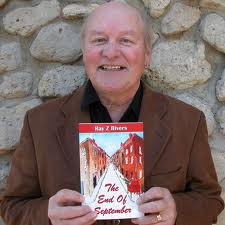 Rivers with his latest book: The end of September. Ray Rivers writes weekly on both federal and provincial politics, applying his more than 25 years as a federal bureaucrat after which he decided to write and has become a political animator. Rivers was a candidate for provincial office in Burlington where he ran against Cam Jackson in 1995, the year Mike Harris and the Common Sense Revolution swept the province.

|
|
 James Burchill creates communities and helps businesses convert conversations into cash. He’s also an author, speaker, trainer and creator of the Social Fusion Network™ an evolutionary free b2b networking group with chapters across southern Ontario. He blogs at JamesBurchill.com and can be found at the SocialFusionNetwork.com or behind the wheel of his recently acquired SMART car.
James Burchill creates communities and helps businesses convert conversations into cash. He’s also an author, speaker, trainer and creator of the Social Fusion Network™ an evolutionary free b2b networking group with chapters across southern Ontario. He blogs at JamesBurchill.com and can be found at the SocialFusionNetwork.com or behind the wheel of his recently acquired SMART car.













































 I have also repeatedly asked “when does an airpark become a dump” – and now we know the answer: according to Terrapex, the consulting firm hired by the city, the airpark is “an unlicensed waste disposal site” – it doesn’t get much more succinct than that.”
I have also repeatedly asked “when does an airpark become a dump” – and now we know the answer: according to Terrapex, the consulting firm hired by the city, the airpark is “an unlicensed waste disposal site” – it doesn’t get much more succinct than that.” Warren thanked the city and added that,” regardless of how damming and horrifying this report is, the City, and its wonderful staff, deserve a huge amount of credit for the way in which it has aggressively faced the airpark issue since our very first meeting in May.
Warren thanked the city and added that,” regardless of how damming and horrifying this report is, the City, and its wonderful staff, deserve a huge amount of credit for the way in which it has aggressively faced the airpark issue since our very first meeting in May.
 And former Etobicoke mayor Holyday may well be one of them.
And former Etobicoke mayor Holyday may well be one of them.


 Did I mention consultants? Burlington LOVES her consultants, Forum Research provided 31 pages of survey data that supports the community’s view that Trees are important!! Fifty Nine percent suggested more needs to be done to protect trees. A one page spread sheet and four paragraphs are included in City Staff’s portion of this feasibility study that superficially addresses what other cities do and do not do to protect trees on private property. What towns have them, number of times amended, number of annual infractions, fines, staff required, number of permits issued and fees, exemptions and a one word answer if the by law is effective.
Did I mention consultants? Burlington LOVES her consultants, Forum Research provided 31 pages of survey data that supports the community’s view that Trees are important!! Fifty Nine percent suggested more needs to be done to protect trees. A one page spread sheet and four paragraphs are included in City Staff’s portion of this feasibility study that superficially addresses what other cities do and do not do to protect trees on private property. What towns have them, number of times amended, number of annual infractions, fines, staff required, number of permits issued and fees, exemptions and a one word answer if the by law is effective.
 Lets look at this a little more critically, the city of Oakville have staff of exactly one person to run the tree by-law, Guelph has 4. if part of the reason staff have drawn the conclusions they have is a result of little support for taxes increased to be spent on one position, can we not find the money in existing programmes? What about permits and fines? Surely this can be a self funding office,! I would argue it could generate a surplus to fund some of the other wacky stuff city staff actually want to do. My conclusion is, for some reason, city staff don’t want the headache of an office that actually does stuff, but would rather play with Adobe Suite making marketing plans that the people of this town really don’t give a squirrel’s tail about. Otherwise why would they have devised a process designed to produce these results? Make no mistake, one just has to make it through the report and read how the on-line questions have been asked, to come to the same conclusion. It is either that or one must ask if city staff is up to the task.
Lets look at this a little more critically, the city of Oakville have staff of exactly one person to run the tree by-law, Guelph has 4. if part of the reason staff have drawn the conclusions they have is a result of little support for taxes increased to be spent on one position, can we not find the money in existing programmes? What about permits and fines? Surely this can be a self funding office,! I would argue it could generate a surplus to fund some of the other wacky stuff city staff actually want to do. My conclusion is, for some reason, city staff don’t want the headache of an office that actually does stuff, but would rather play with Adobe Suite making marketing plans that the people of this town really don’t give a squirrel’s tail about. Otherwise why would they have devised a process designed to produce these results? Make no mistake, one just has to make it through the report and read how the on-line questions have been asked, to come to the same conclusion. It is either that or one must ask if city staff is up to the task.




 So I got used to people listening in.
So I got used to people listening in.















